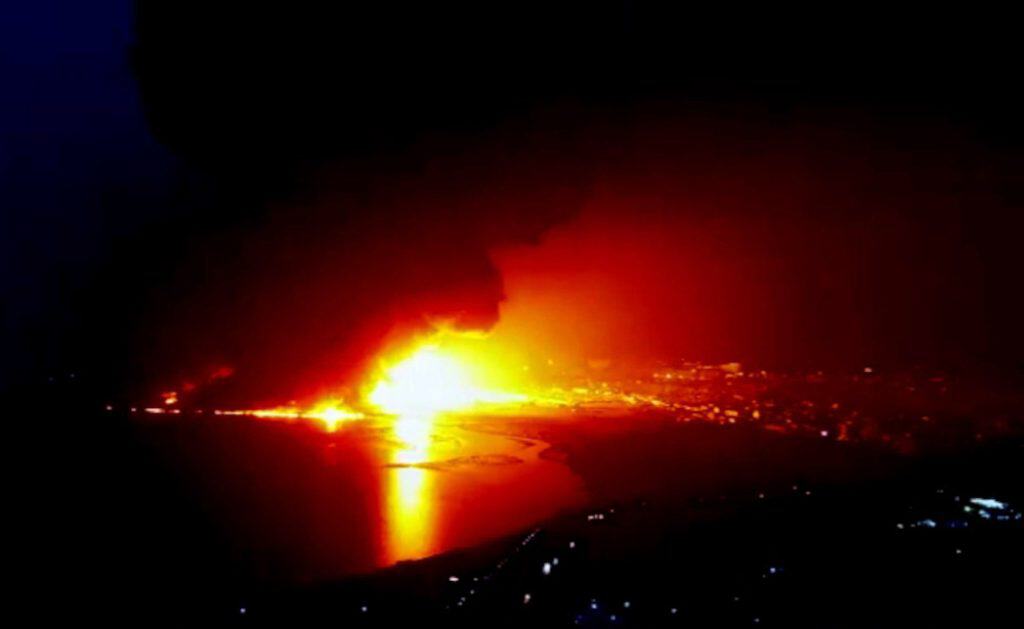
The Israeli Air Force carried out retaliatory strikes on Yemen on July 20, a day after a Houthi drone attacked Tel Aviv, killing a civilian and wounding others. It is the first time the Israeli military has responded to persistent attacks by the Houthis against Israeli territory following the beginning of the Gaza war on October 7, 2023.
“IDF fighter jets struck military targets of the Houthi terrorist regime in the area of the Al Hudaydah Port in Yemen in response to the hundreds of attacks carried out against the State of Israel in recent months. There are no changes in the Home Front Command defensive guidelines. In the case of a change to the guidelines, we will update the public accordingly,” said the IDF.
At an IDF press briefing attended by FDD’s Long War Journal, a military official stated the Houthis had fired over 200 projectiles since the Iran-backed group began launching drones and missiles at Israel on October 19, 2023. Hudaydah Port, the target of the Israeli Air Force’s attack, is where the Houthis receive Iranian advanced weapons used to target Israeli territory, the official said. The official noted that the operation also targeted Houthis’ dual-use and energy infrastructure.
Houthi spokesperson Yahya Sare’e published a statement saying that the Israeli strikes targeted electrical stations, a fuel depot, and Hudaydah Port, which he claimed are “civilian targets.” Sare’e remarked that despite the attack, the Houthis will not be deterred and will continue attacking Israel.
Following the strikes in Yemen, Israeli Defense Minister Yoav Gallant issued a warning to the Houthis and its partners in the Iran-led Resistance Axis.
“The fire that is currently burning in Hodeidah is seen across the Middle East, and the significance is clear. The Houthis attacked us over 200 times. The first time that they harmed an Israeli citizen, we struck them. And we will do this in any place where it may be required. The blood of Israeli citizens has a price. This has been made clear in Lebanon, in Gaza, in Yemen, and in other places—if they will dare to attack us, the result will be identical,” said Gallant.
The Houthis have been targeting Israeli territory and its interests for nine months. Every drone, cruise missile, and ballistic missile fired at Israel had the potential to elicit a response by the IDF. Yet, it may be the repeated failures of the Houthis to inflict significant damage on Israeli soil that have led Israel to exercise restraint, choosing not to launch a major military strike in Yemen. Furthermore, the war in Gaza, persistent Hezbollah attacks from Lebanon, and assaults in the West Bank by Palestinian terrorist groups have kept the IDF busy.
Previous Houthi attacks on southern Israel did not cross a red line. However, Gallant signaled that the Israeli calculus changed when a Houthi drone killed and wounded Israeli civilians in Tel Aviv on Friday morning. Moreover, it’s highly likely the Israeli response will not deter the Houthis, and they will continue their strategy of attacking the Jewish state and vessels in the Red Sea. Nevertheless, it is now clear to both sides there is a red line the Houthis cannot cross without an Israeli response.







